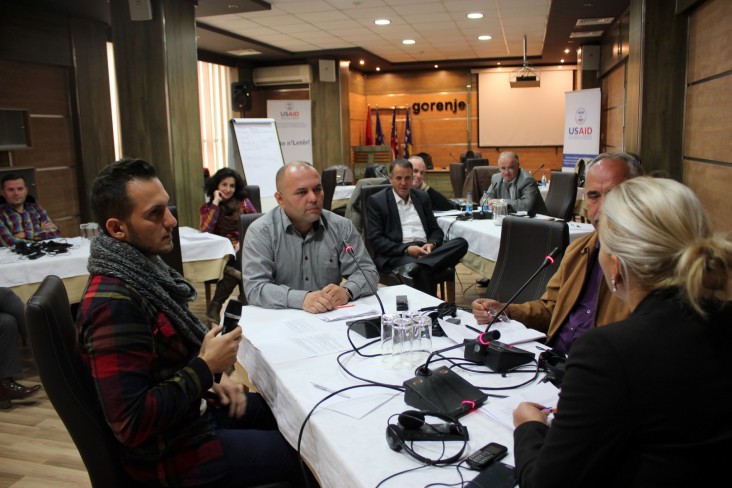
February 2016—Kosovo has a legal problem. A backlog of more than 400,000 cases await adjudication, and cases in the courts can last four to six years. More than 100,000 unenforced judgments particularly affect business disputes.
Enter alternative dispute resolution: arbitration and mediation. Now, people in Kosovo have more options to settle disputes quickly and legally.
Arbitration typically resolves cases much quicker than the courts, usually in under a year; when expedited, even in less than four months. The arbitrator does not need to be a lawyer—though a lawyer must be present. Once a decision is reached, a court certifies it as a legally enforceable verdict, which cannot be appealed.
For even quicker dispute resolution, parties can choose mediation—in which they attempt to resolve the dispute themselves, through negotiation, with the assistance of a trained, independent mediator chosen by both sides. Typically, mediation only requires two or three sessions. If the dispute isn’t resolved by then, parties can try arbitration instead.
Robert Muharremi helped draft Kosovo’s Law on Arbitration and has served as an arbitrator in several cases himself—though he notes that “historically, Albanians had ADR [alternative dispute resolution] mechanisms based on the Kanun, a codification of laws and rules that were centuries old .… This is just a modern version of what we did for hundreds of years!”
So modern that alternative dispute resolution is the backbone of international law. With different legal systems in different countries, international disputes are difficult to solve at trial. Similar alternative methods can also be used to resolve disputes between companies or individuals.
USAID helped establish the first arbitration tribunals to function in Kosovo, which processed their first cases in 2012. Kosovo’s Chamber of Commerce hosts the Permanent Tribunal of Arbitration, while the American Chamber of Commerce in Kosovo has an Alternative Dispute Resolution Center. It is the only American chamber of commerce out of 43 in Europe that offers mediation in addition to arbitration.
These tribunals specialize in commercial law and have mostly handled disputes regarding construction contracts and insurance policies. Disputants who pursue arbitration can choose an approved arbitrator from a list, enabling them to agree on an arbitrator (or a panel of three) with strong experience in the field under dispute.
USAID also helped with setting up three mediation centers outside Kosovo’s capital (in Gjilan, Peja and Prizren) which arrange mediation of cases referred from the courts as well as disputes brought by the parties themselves. These centers have settled nearly 700 cases, including one where a strike was averted during a recent labor dispute between Kosovo Energy and Distribution Service and its employees.
USAID assisted with training both mediators and arbitrators in 2012, and with public outreach to businesses, the legal system and the general public on the benefits of alternative dispute resolution. For the first time, companies began including alternative dispute resolution clauses in contracts, and people are now calling both chambers of commerce to ask how the process works.
“With arbitration, you really are a service—you really serve the parties, all based on what they choose for the proceedings,” says Muharremi. “You must respect what they agreed in terms of procedure (the rules are flexible) …. I’m not a judge, to impose the law. I’m there to come to a decision with the cooperation of the parties.”
While parties to any dispute can voluntarily choose alternative dispute resolution, a growing number of business contracts in Kosovo are including a clause that states any later dispute will be resolved through that process. When lawsuits are filed, judges are obliged to review contracts, and already a judge has pointed out to disputing parties that they had such a clause in their contract, so they withdrew their case from the court to instead solve it through arbitration.
The establishment of alternative dispute resolutions centers were part of USAID’s Systems for Enforcement of Agreements and Decisions program, which concluded in 2011. However, through its Increasing Capacities to Provide Arbitration Services program, USAID continued to support the American Chamber of Commerce in Kosovo and Kosovo Chamber of Commerce until November 2015 to serve as an arbiter in issues pertaining to commercial law.
LINKS
Follow @USAIDKosovo. on Facebook, on YouTube







Comment
Make a general inquiry or suggest an improvement.